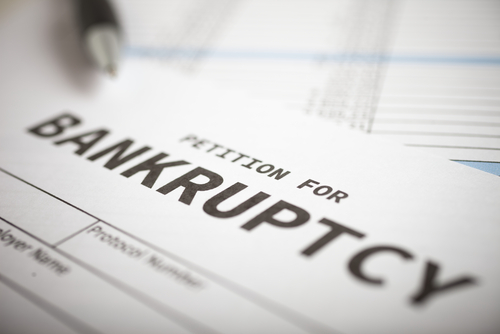Saving - Banking
YourMoney.com Mailbag: bankruptcy

Dear YourMoney.com,
I’m considering declaring myself bankrupt. I took out a loan for my fiancée, but we have since split – and I’ve been left holding the debt, along with a number of others of my own.
I’ve read in some places online that bankruptcy would a relatively painless option – in others, that it could mean I’ll never own a home or a credit card. I’ve also considered borrowing more money to cover my debts. What should I do?
Best wishes,
Gill, Dorset
First things first, you are advised in the strongest possible terms not to borrow more money to repay your existing debts, irrespective of how tempting that option may be. Bankruptcy is almost preferable to that prospect, but there are a number of options available to you that may mean you don’t need to make that declaration either. YourMoney.com asked Simon Gilbert, partner at Edmund Cox LLP and specialist in insolvency and restructuring, for his view.
“Your first priority should be to rank your debts in order of precedence – debts where non-payment could mean losing your home, ending up in court, having your heating cut off and the like should come first, along with debts with the highest interest rates,” he advises.
“Once ranked, calculate how long it would take to clear them given your present means. Think realistically about how much you can afford to pay each month, and whether you will be able to stick to this. It may be that your debts are totally unmanageable, and you cannot afford to meet all of your responsibilities in a way that allows you to live to an adequate standard.”
If this is the case, only then should you consider bankruptcy.
“We’re lucky in the UK to have a legal structure that aims to protect debtors wherever possible,’” Gilbert continues.
“This means that if you do decide to go the route of bankruptcy, life won’t be unliveable for its duration – and things can return to comparative normal once it’s over.”
In the UK, time can heal the financial wound of bankruptcy. It will stay on your credit file for six years – after that, you effectively have a clean slate. In the interim, there are a number of things you can do to build up your credit rating – YourMoney.com has published a number of guides detailing how. There are also a number of products catering to sub-prime and near-prime consumers, such as the Marbles credit card.
However, while bankruptcy may not necessarily be an ordeal, it’s still a ‘nuclear option’ when you’re in debt. It is a drastic route, which will far-reaching and significant implications for you and your finances for some time.
“You should always consider bankruptcy as an absolute last resort,” says Gilbert.
“It may be the case that your debts are manageable, if you restructure them with your creditors, and/or budget yourself effectively, ensuring you establish repayment plans you can keep to.”
There are a number of public bodies that assist consumers struggling with debt. For instance, the Citizens Advice Bureau can help you to prioritise your liabilities and commitments, and calculate ways in which you can pay them. They can even represent you in discussions with creditors, and attempt to suspect interest repayments.
“Another is Payplan, which is funded by the credit industry. The body will consult with your creditors, and arrange a repayment plan that suits them and you both,” Gilbert says.
“You then forward money to them on a monthly basis, and they distribute the money to your creditors. Some debt management firms charge a fee for the service, but Payplan is completely free to use.”
Gilbert also recommends you speak to National Debtline.
“This is a public body that negotiates with creditors on a debtor’s behalf, and may be able to help you manage your debt better,” he notes.
“The service is completely free, and may mean you don’t have to go the route of bankruptcy at all.”
Unfortunately, Gilbert warns that bankruptcy may still have negative implications for you after it has been removed from your credit file.
“Archive records are kept longer, and most financial institutions will check these records when they assess applicants,” he explains.
“Some mortgage lenders have a strict policy of rejecting anyone who has ever been bankrupt, too.”
Rejected applications for credit can have a damaging effect on your credit rating, so be careful about how often you apply – and use free tools like Experian’s credit check, which will assess your rating without adversely impacting it, to keep an eye on your standing.
If you have a question that you would like answered by an expert, please contact Kit Klarenberg.